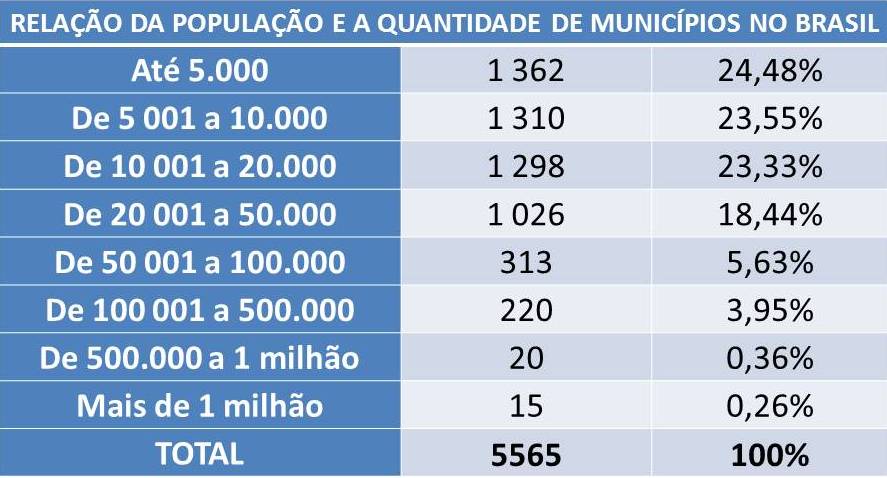
The Emancipation of Municipalities depends on regulation. Law no. 9,709/98, regulated popular sovereignty that is imposed through plebiscite, referendum and Initiative popular. Therefore, when emancipating a municipality, it is necessary to comply with the following requirements:
Convocation of the Legislative Assembly, in accordance with federal and state legislation.
- Plebiscite of the population directly interested.
- State law within the period established by federal complementary law, worth highlighting the non-existence of this federal complementary law in the legal system, which is why all creation, incorporation, merger and dismemberment of Municipalities is currently unconstitutional.
- Municipal feasibility study whose guidelines must be established in Ordinary Law federal.
Regarding the creation, incorporation, merger and dismemberment of municipalities, we note that it must be carried out by state law, within the period determined by federal supplementary law, we also emphasize that this Federal Law does not exist, and all municipal territorial provisions would be unconstitutional.
In this sense, the decision of the Superior Electoral Court,
WARRANTY. CREATION, INCORPORATION, MERGER AND DISMEMBERMENT OF MUNICIPALITIES. REQUIREMENT OF PRIOR EDITION OF THE FEDERAL COMPLEMENTARY LAW REFERRED TO IN ART. 18, § 49, OF CF/88, AS WORDED BY EC N. 15/96. STF PRECEDENTS. EVIDENCE OF LIQUID AND CERTAIN RIGHT, TO SUPPORT THE GRANT OF THE INJUNCTION MEASURE AND OWN SECURITY, LEADING TO THE SUSPENSION OF THE EFFECTS OF RES.-TRE/SC N. 7,346, OF 10/7/2003.
– It is unfeasible to create, incorporate, merge and dismember municipalities before the issuance of the federal supplementary law referred to in the ad. 18, § 42, of the Law
Fundamental, with the wording given by EC n. 15/96. Precedents of the Federal Supreme Court.
- Once the certainty and liquidity of the right invoked by the petitioner is demonstrated, the injunction must be granted, and the security itself, to determine the suspension of the effects of the Resolution n. 7,346, dated 10/7/03, from TREISC, which regulated the holding of a plebiscite consultation in the Municipality of Chapecó.
MS 3158 TSE
Effects of the Plebiscite and Referendum:
The effects of the referendum and the plebiscite were not explained in Law 9,708/97, however, it is worth noting the fact that the plebiscite, as understood by the most authoritative doctrine, as a rule, does not bind the National Congress, which is responsible for the practice legislative.
As Alexandre de Moraes teaches,
“the denial in the plebiscite prevents the Legislative Process, while the agreement of interested parties allows the Project of law be discussed in the national congress, without however binding it, as it must protect the general interest of the Federative Republic of Brazil”.
In relation to the referendum, it is worth noting that throughout Brazilian republican history there was no use of this important instrument of popular sovereignty. In this way, the doctrine did not converge its notes in order to pacify the understanding about its effects, namely whether the people's decision binds the National Congress.
I understand that it is unfeasible to create, incorporate, merge and dismember municipalities before the issuance of the federal supplementary law referred to in the ad. 18, § 42, of the Fundamental Law, as amended by EC n. 15/96. Precedents of the Federal Supreme Court, since such a legal system does not exist in the area of legislation that regulates the major charter, which makes it impossible to successfully conclude the battle imposed by the consultant.
